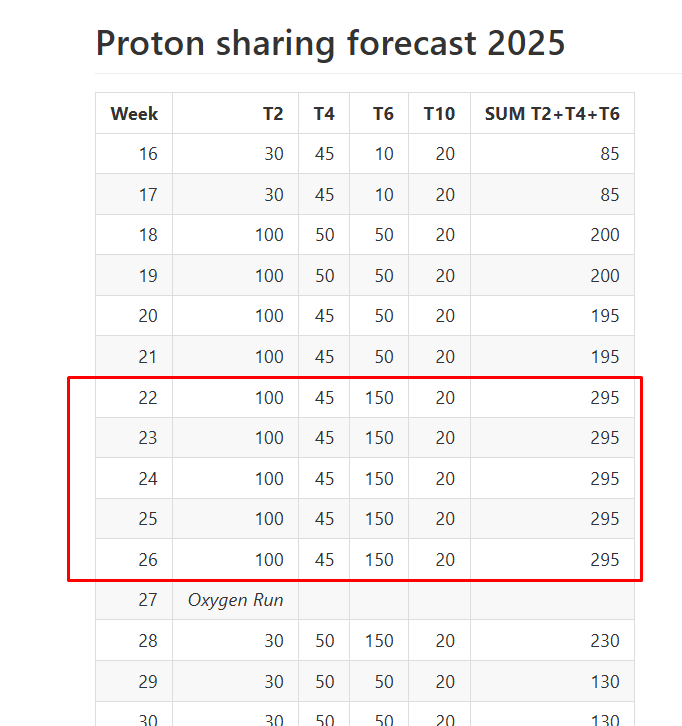
Coordinator for this week 16 : Martin Jäkel
Coordinator for week 17 & 18 : Paolo Martinengo
Current PS / SPS User schedule v1.1.1
Problem with updating web page solved. Schedule to be put on web page after the meeting.
Injector schedule (v1.1) for 2025 is available here: https://edms.cern.ch/document/3057281/latest
EuroLabs : We will soon send out the call for 2025. New day rates (tbc).
M.R. Jäkel, P. Martinengo
Proton Run 2025
Newly vacant beam slots :
Please contact SPS.Physics.Coordinator@cern.ch if you want to apply for any of theses slots.
Reminder: Beam time exceeding the limits of 2 weeks PS beam time and 1 week SPS beam time per year need the approval of one of these CERN committees: SPSC, LHCC, DRDC, INTC, RB or IEFC. Consider joining a DRD collaboration, if you require more beam time.
Target intensities:
See below or via ASM (accessible from within the CERN network).
| T2 | T4 | T10 | T6 | Date | Week |
|---|---|---|---|---|---|
| 30 | 45 | 21 | 10 | 16.04. | 16 |
| 30 | 45 | 21 | 10 | 23.04. | 17 |
| 100 | 50 | 21 | 50 | 09.10. | 18 |

SPS : Problems establishing channeling using the crystal (TECS.21602) which should shadow the ZS. Maximum intensity to NA limited.
Upcoming SPS MDs next weeks :
https://be-dep-ea.web.cern.ch/content/md-planning-north-area
Dedicated SPS MDs - if not anounced differently - are taking place from 8:00 to 18:00
No major faults - problems still persisting with TECS for crystal shadowing; limit on total intensity in the machine to 250e10; mitigation will be investigated; problem with RF cavities power system, burnt resistor had be be exchanged; problem under investigation by RF;
Incoming:
Long intervention in EAR2 has been completed on 15.04 for change of the experimental setup.
A set of LaBr3 and HPGE (used to study the 87Sr(n, g) reaction) have been removed, and the STED (Segmented liquid scintillators for Total Energy Detection) array has been mounted.
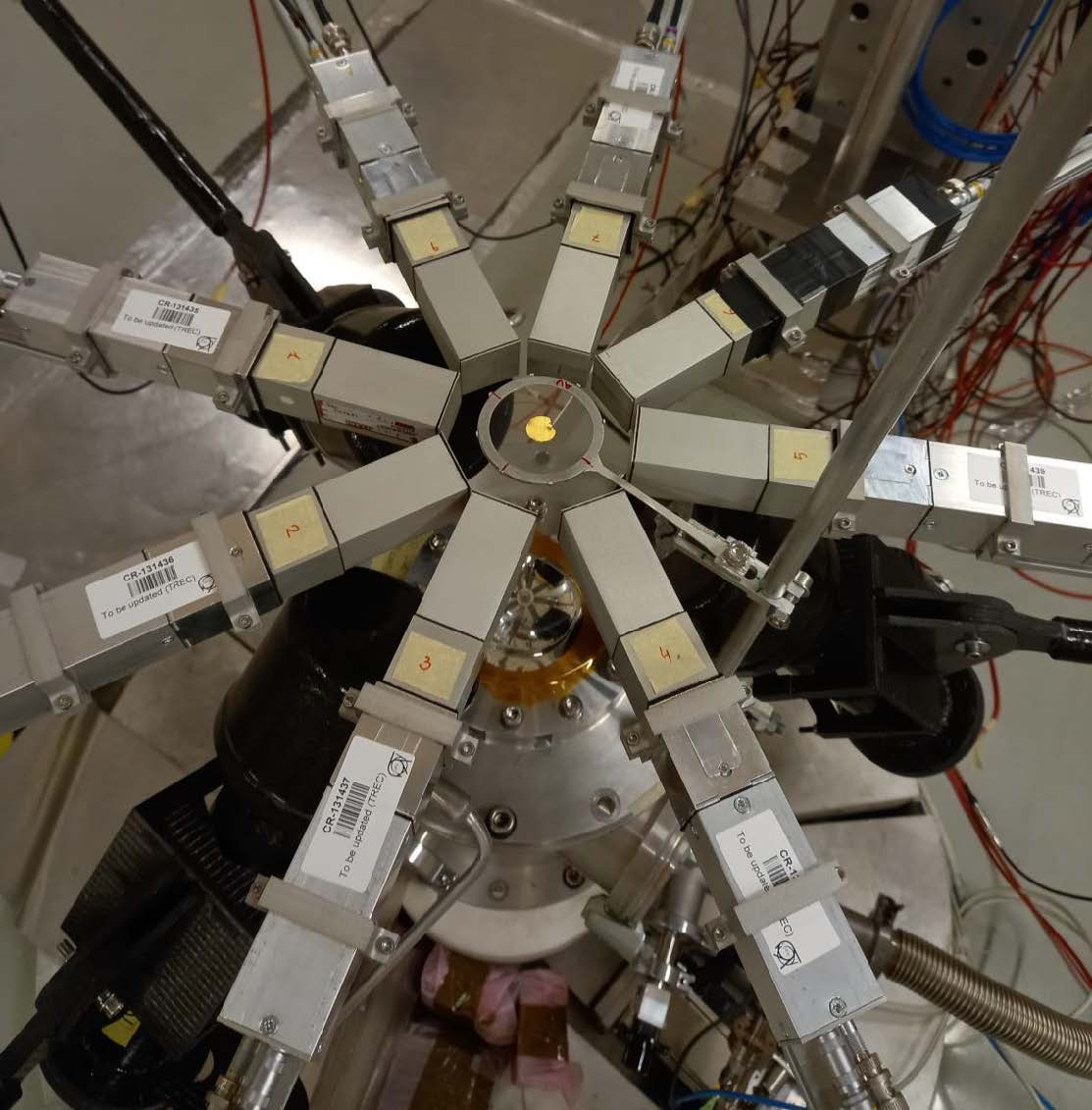
Data taking on:
• EAR1: C6D6 detector for the study of the 97,98Mo(n, g) reaction
• EAR2: study of the 124Sn(n, g) reaction
• NEAR: Study of radiation hardness for a diamond detector
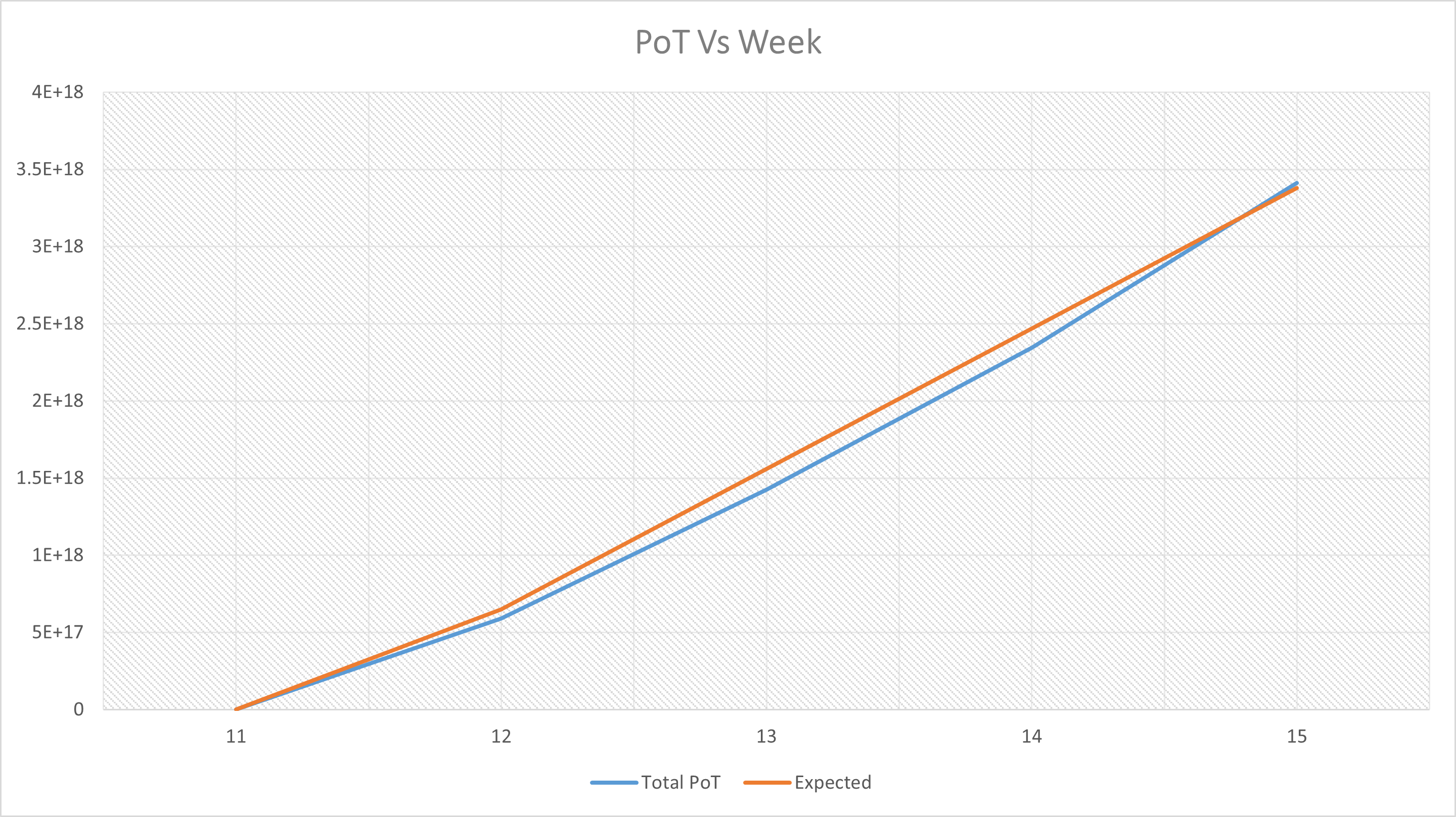
Protons received
On call phone number: 67500
T9 / T10: No issues to report. Good operation.
T10: Will change beam later today with ALICE ITS3 who continue.
T11: No user.
Smooth operation week in T8. Proton fluence level above the weekly reference value (~2.8E16 p/w). TID generated by the CHARM target at the reference position is 570 Gy. Beam centering on T8 was again excellent on both axes (>97% of the time center within +/- 2mm). PS/F61/T8 transmission not verified this week.
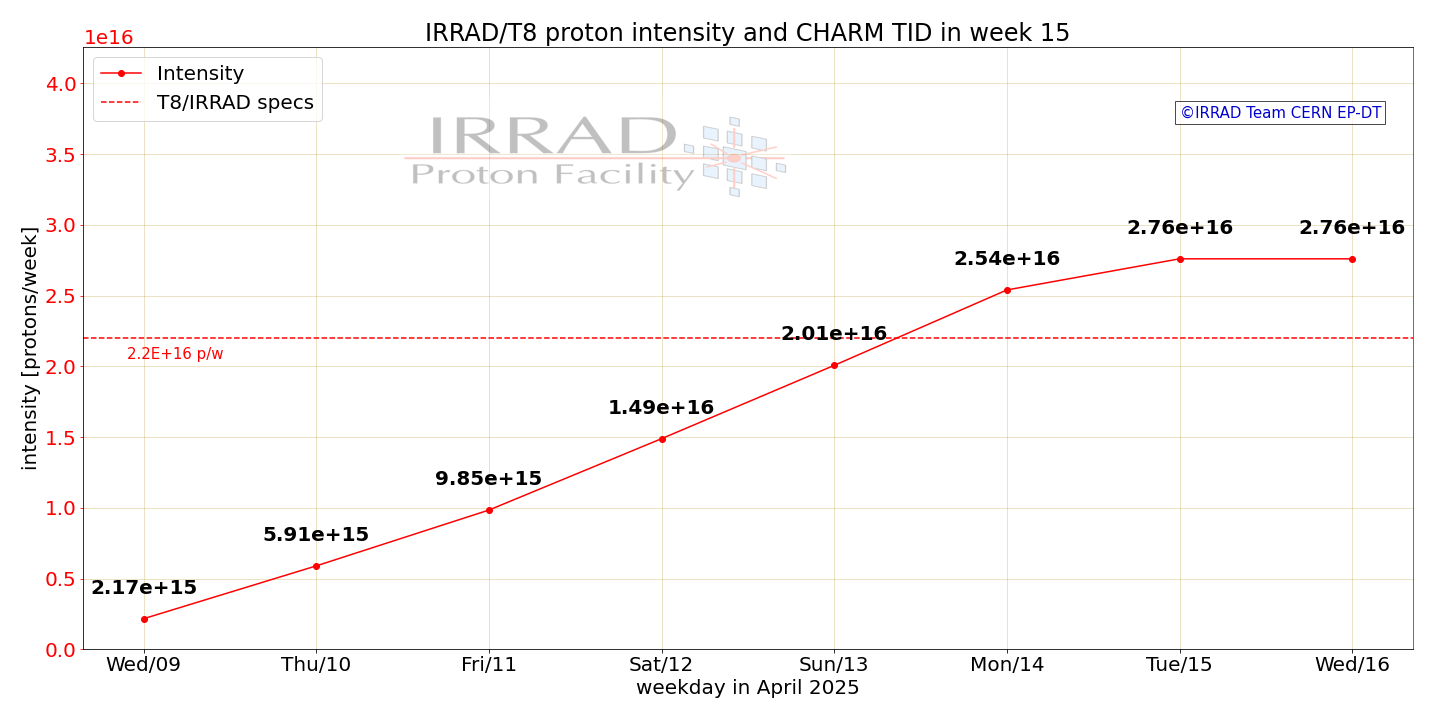
Tuesday (when CHARM irradiations already completed) the CCC worked in the preparation of a wider beam (~15-18mm FWHM at BPM3 with reduced intensity) to be used beginning of May for a complex LHCb experiment. Access on Tuesday at 16:00 to install dosimetry samples for this special beam (that run until the beam stopped on Wednesday).
During the weekely acces of Wed. April 16th, new samples (DRD3) were added in IRRAD. The SY-BI experiment was removed while TE-MSC, EP-DT and LHCb TimeSPOT continue. In CHARM removed samples by ALICE, exchanged samples by BE-CEM. Beam back with standard conditions.
Next access will be on Wednesday April 23rd.
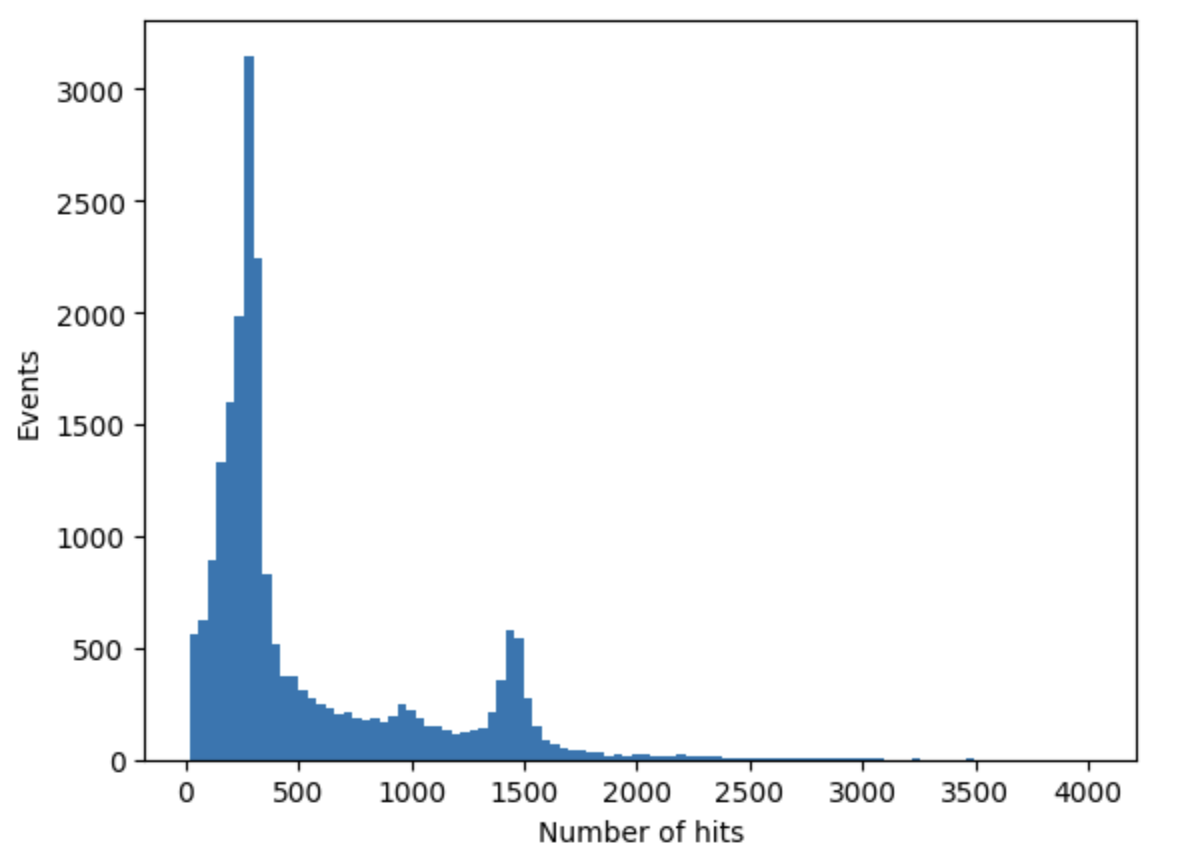
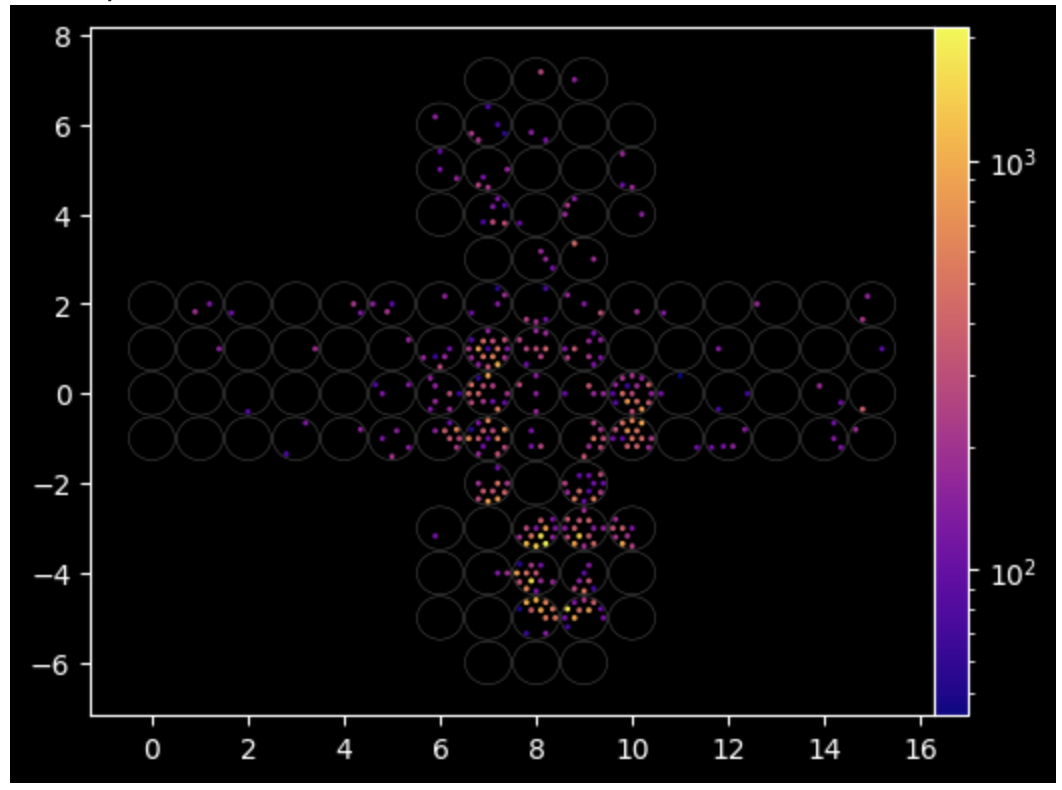
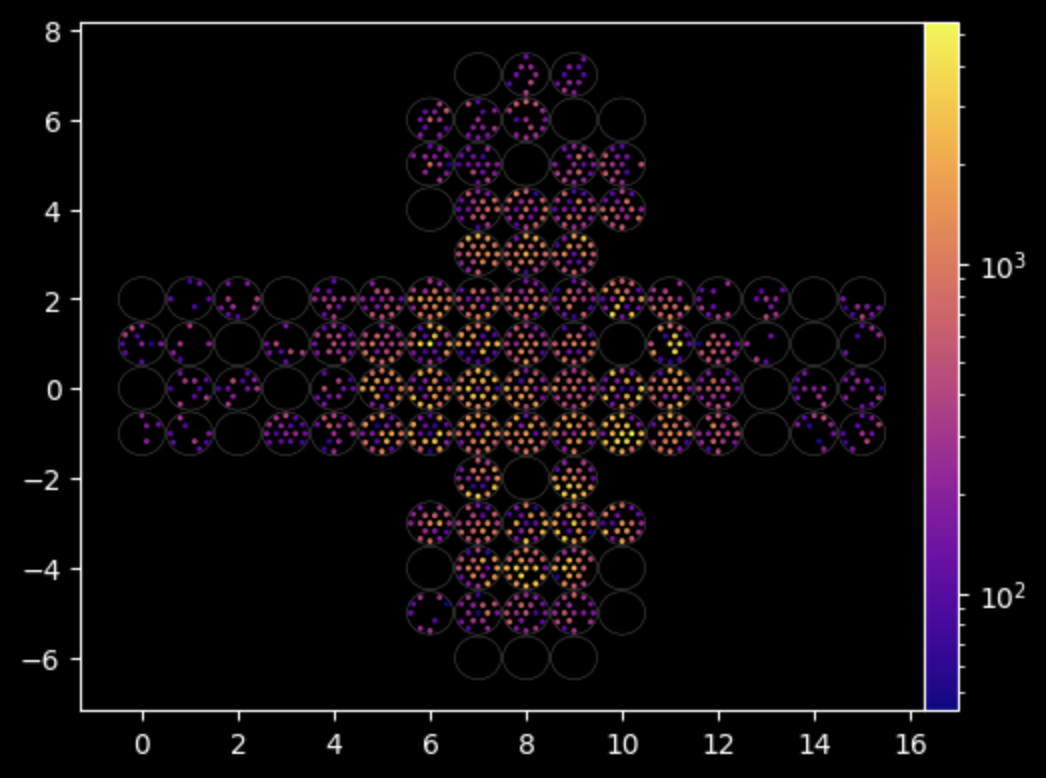
Very smooth start, excellent beam (800 ms) since the very beginning
Very stable, we completed our high priority measurements already
after 4 days. Continuing with optional ones.
Discussed with the next user, we can stay in the zone if the DESY table is not needed
elsewhere.
On call phone number: 67500
H2/H4: Smooth operation.
H6: One dipole magnet went into fault on Wednesday at 3am as did a few other magnets in other lines causing a loss of beam in H6. It was reset in the morning when ATLAS HGTD called. Otherwise, good operation.
H8: Beam commissioning completed successfully. First user installed in H8C, large beam vertical and small horizontal, smooth operation so far!
M2: Beam commissioning completed and zone handed to user on 14th April. Installation ongoing.
P42/K12: Beam commissioning done, waiting for final collimation checks (today).
Pre comissioning test on 23.04, optics for DPA & Fireball to be checked.
Tested some extractions to awake yesteray. Today access for marker laser beam alignem t.
Ready for beam next week
First beam already on Friday, week-end devoted to complete installation.
Safety clearance on Monday afternoon, all set-ups now taking data
CMS-CSC (2)
ATLAS-MPI
ECOGAS
CMS-RPC (2)
ATLAS-MM
Straw Tracker parasitically in PPE134
We start installation and commissioning next wednesday with slightly modified setup. We completed the isiec form and we have requested our safety visit for next Friday 25th at 15.30. We plan to complete commissioning by 30th of April when we will installe the additional vacuum and remove all material of the line. We plan to take data with electrons at 100 GeV and dedicate last week of our run to positrons until 23rd when we finish. The week from 7th of july after oxygen stop will be dedicated to negative pions at 40 and 50 GeV as this can be done in parallel to the user in H2.
We completed the setup installation over the weekend, and the safety check was successfully passed on Monday morning.
Due to a failure of the main chiller in H6A, we began data taking on Tuesday afternoon, after connecting the cold box’s main cooling circuit to the second smaller chiller available in the area.
This morning, we finished the measurements of the first DUT. We are now preparing to mount a 1x2 module. Given the larger area of the module, we would appreciate if the beam could be stretched more along the Y-axis, if possible.
Installation and commisioning during Monday and Tuesday. Tuesday afternoon passed the safety check.
Some issues with one of the elements of the setup (CROC producer) but smooth and estable data taking since Yesterday noon.
Setup:
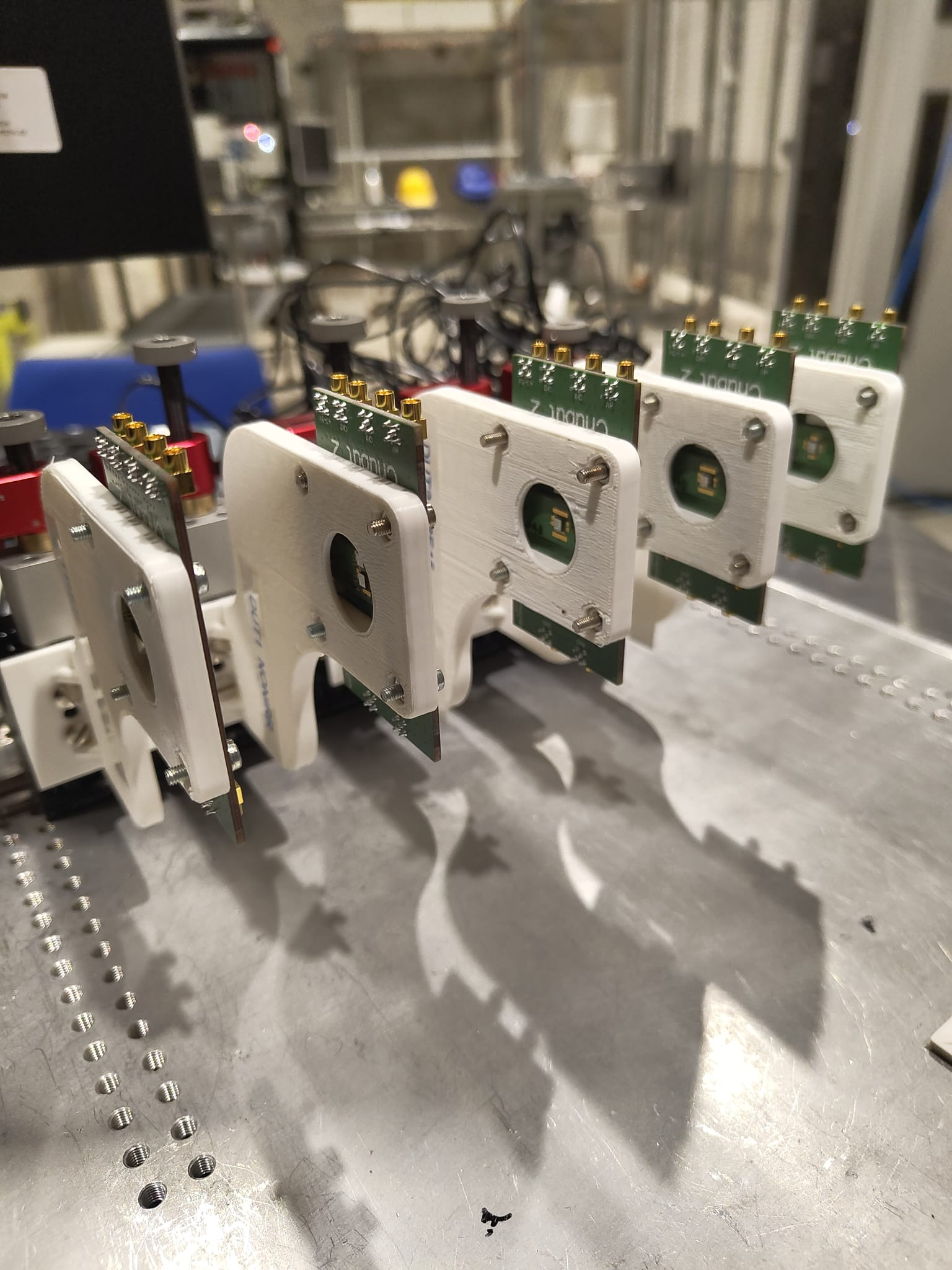 {width=250px}
{width=250px}
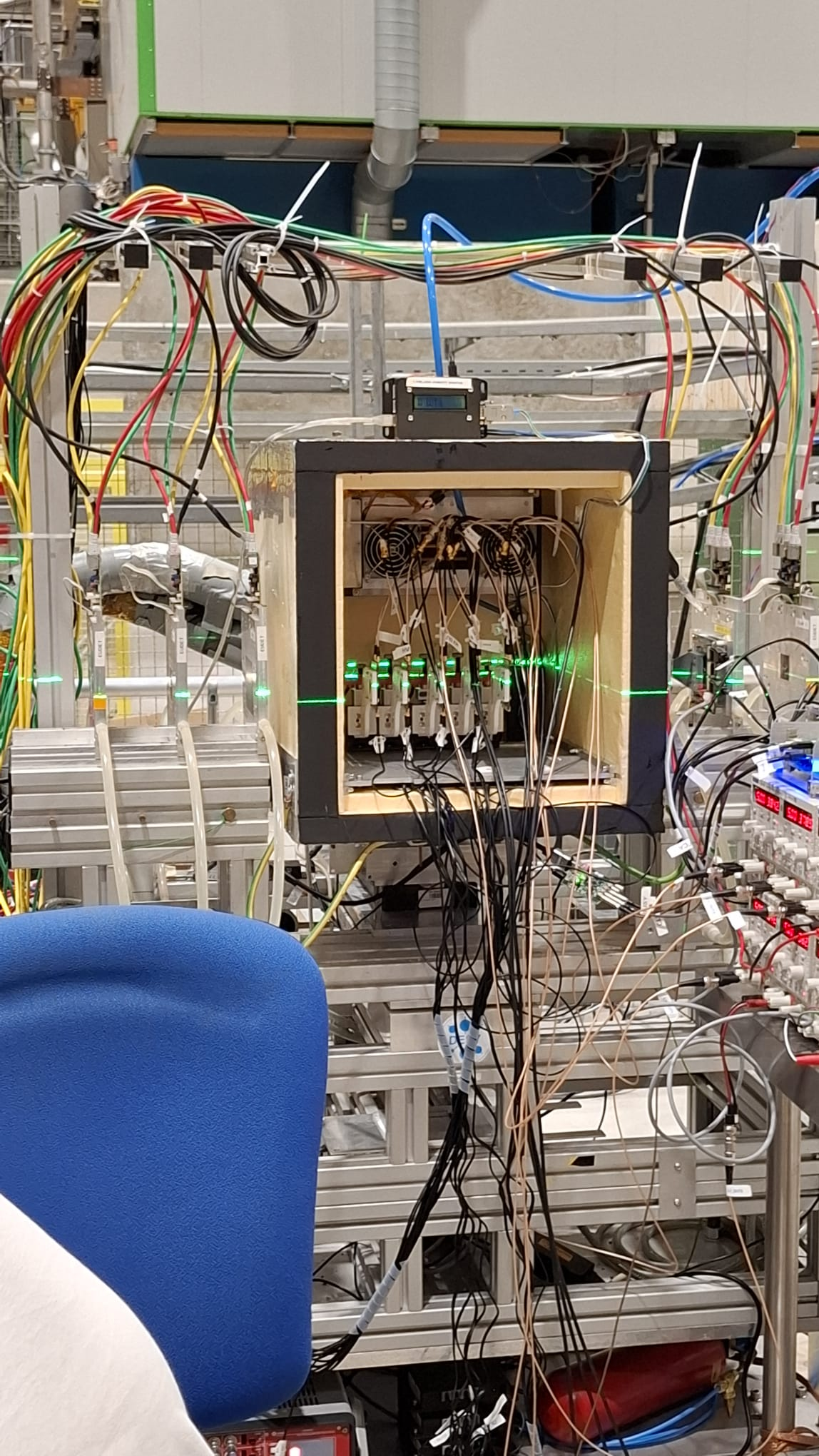
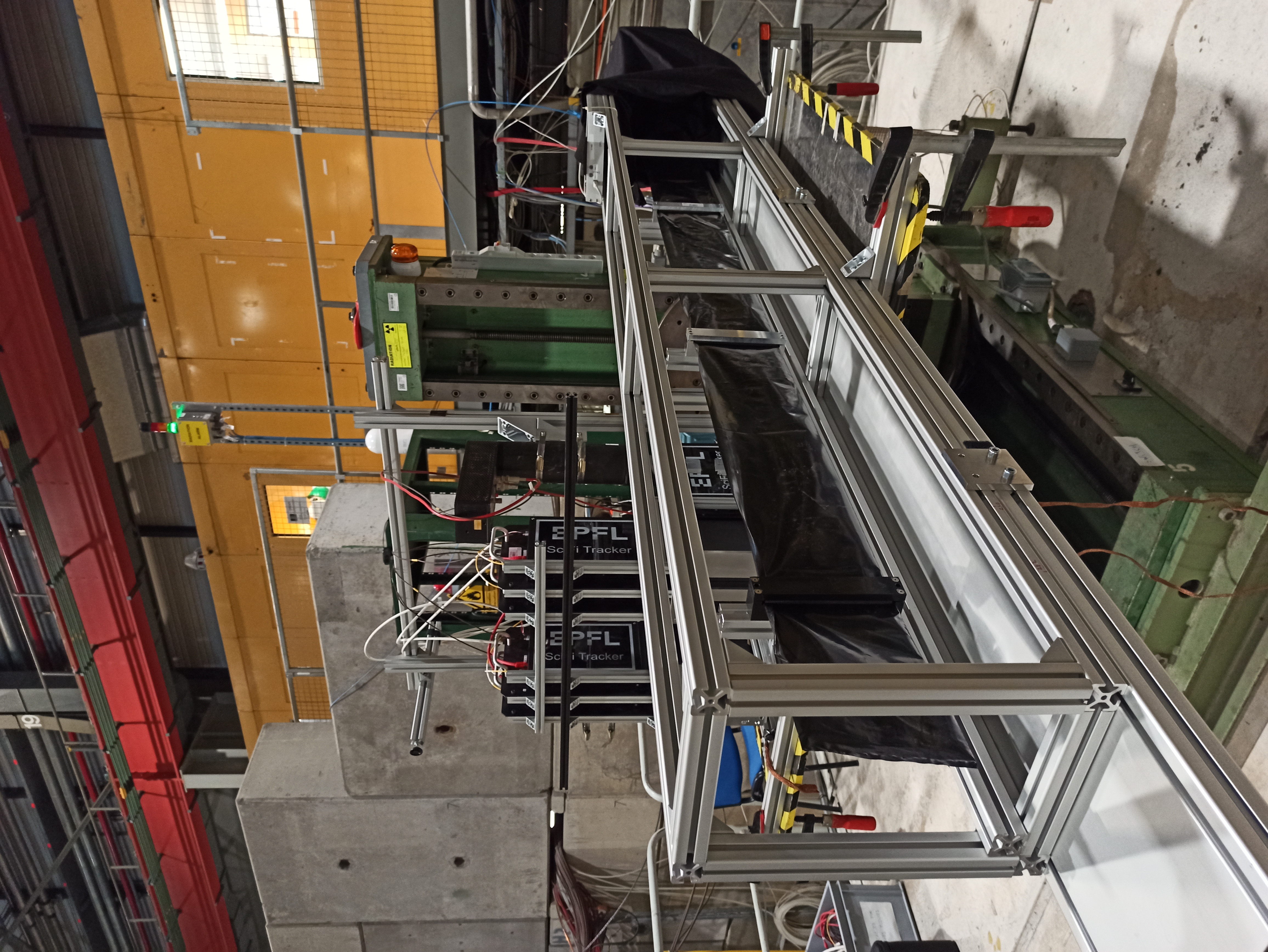
Last weekend we asked muon beam used for calibration of the various detectors
Monday afternoon we started the CEDAR filling with H2, filling finished around midnigth
Tuesday dedicated to the commissioning of the CEDAR
Wednesday final tets and checks of the detectors.
Today we started our physics program
Minutes by the respective speakers, edited by M. Jäkel, M. Malkin, and M. Schwinzerl